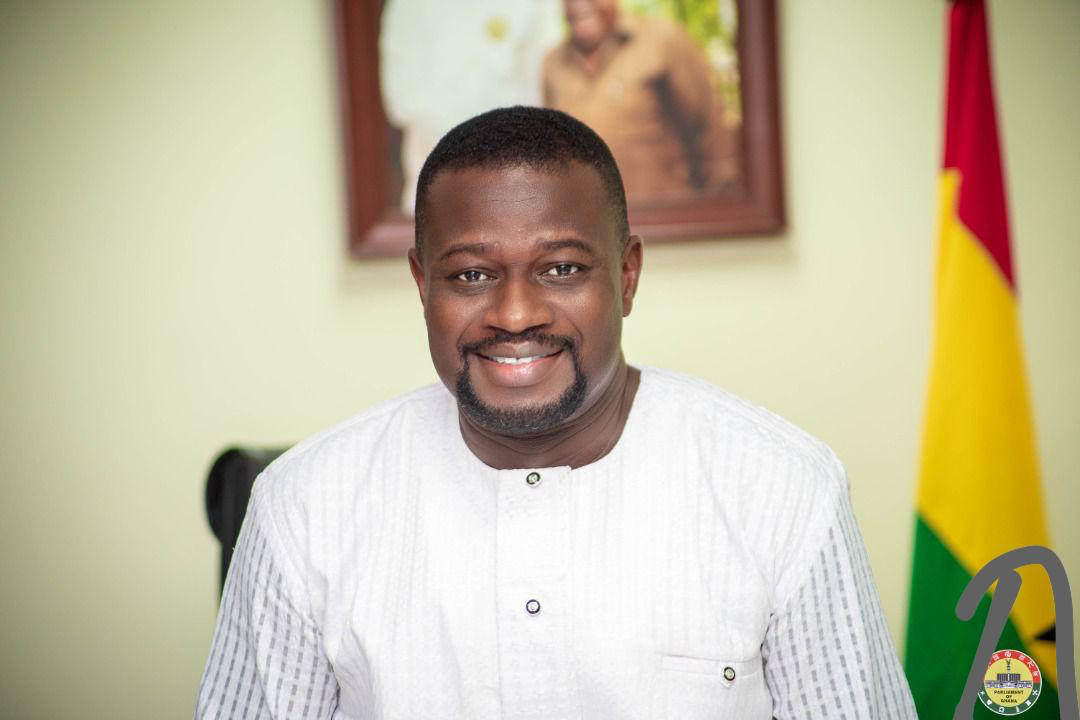
Mr. Speaker, Honourable Members,
- I rise today with a deep sense of urgency and national responsibility to address the future of our cities—our engines of economic growth, social development, and cultural identity. Ghana’s urban centres—Accra, Keta, Kumasi, Sunyani, and Tamale—are expanding rapidly. According to the Ghana Statistical Service (2021), over 58% of our population now resides in urban areas, a figure projected to rise beyond 65% by 2040. However, this urban transition has not been matched with sustainable environmental planning, leading to mounting climate vulnerabilities, loss of biodiversity, and deteriorating public health outcomes.
- Empirical evidence shows that urbanisation without nature-based planning exacerbates environmental risks. In Accra and Keta, coastal erosion, tidal flooding, and rising sea levels are displacing families and threatening public infrastructure. The Centre for Remote Sensing and Geographic Information Services (CERSGIS, 2020) reports that Ghana’s eastern coastline loses an average of 1.3 metres annually to erosion. This environmental decay is driven not only by natural forces but also by the destruction of mangrove ecosystems and wetlands, which once served as natural buffers. Yet, these vital ecosystems are rarely budgeted for or restored in urban development schemes.
- Kumasi, once known as Ghana’s Garden City, offers a sobering case of ecological decline. Research by the Forestry Research Institute of Ghana (FORIG, 2019) shows that over 40% of Kumasi’s tree cover has been lost in the past three decades due to haphazard construction and weak enforcement of land use plans. The decline in urban greenery not only increases surface temperatures but also worsens air quality and lowers the psychological wellbeing of residents. Sunyani and Tamale, two fast-growing economic hubs, are showing early signs of environmental stress—urban heat islands, erratic rainfall patterns, and mounting solid waste management problems. These stressors are aggravated by inadequate infrastructure and fragmented environmental governance.
- Mr. Speaker, these problems are not unique to Ghana. However, countries that are proactively adopting Nature-based Solutions (NbS) are demonstrating measurable improvements in urban resilience and quality of life. The 2024 UNEP Report on the “State of Finance for Nature in Cities” lays out a global framework for integrating NbS into city planning and financing. Cities such as Medellín, Colombia, and Freetown, Sierra Leone, have implemented successful urban forestry programs and green infrastructure to mitigate floods and extreme heat. In Freetown, for instance, Mayor Yvonne Aki-Sawyerr’s “Freetown the Treetown” initiative has led to the planting of over 1 million trees between 2020 and 2023, with measurable reductions in landslides and surface runoff (World Bank, 2023).
- This proposal seeks to replicate such success by modelling Ghanaian cities using the UNEP Urban NbS Framework. Specifically, the proposal aims to: (1) adopt UNEP’s 10-element framework to map municipal functions and classify nature-based expenditures; (2) build the capacity of city governments to track and finance NbS; (3) integrate NbS into local government planning and budgetary systems; and (4) align urban development goals with SDG 11 (Sustainable Cities), SDG 13 (Climate Action), and Target 12 of the Global Biodiversity Framework, which calls for urban green and blue spaces to be expanded and restored by 2030.
- Implementation of this model will differ by context. For coastal cities like Accra and Keta, the emphasis will be on greenbelt restoration, rehabilitation of degraded mangroves, and the introduction of blue infrastructure—including bioswales, urban dunes, and permeable pavements. These solutions are proven to reduce flood risk while enhancing biodiversity (Kabisch et al., 2017). Additionally, engaging local fishing communities in shoreline afforestation and waste recycling initiatives can simultaneously promote ecosystem services and create green jobs.
- Inland cities such as Kumasi, Sunyani, and Tamale will benefit from urban forestry interventions, community food forests, and rainwater harvesting systems. Tamale’s peri-urban areas, for instance, present an opportunity for establishing women-led sustainable agriculture cooperatives, enhancing food security and livelihoods. Such models have already been piloted in Burkina Faso and Uganda with support from the FAO and have yielded improved nutrition and income diversification for vulnerable households (FAO, 2022).
- Mr. Speaker, Honourable Members, to institutionalise these reforms, three levels of action are recommended. First, at the national and local government level, we must mandate nature-based budget tagging using adapted Classification of the Functions of Government (COFOG) codes, a practice adopted in Bangladesh and Kenya to improve transparency in environmental finance. Parliament should also enact statutory provisions that integrate NbS into municipal by-laws, building codes, and Local Government Acts.
- Second, we must collaborate with donors and international development partners to establish a National Urban NbS Pilot Fund. This fund could support select cities in developing geospatial baselines, monitoring tools, and MRV systems. Partnerships with UNEP, ICLEI, the University of Ghana, and KNUST could be key to technical capacity building. Lastly, we must actively involve the private sector and civil society by promoting green public-private partnerships, biodiversity offsets, and ecosystem-based enterprises. By offering tax incentives for green buildings or encouraging corporate social responsibility in green space restoration, we can crowd in private capital.
- This proposal outlines a phased implementation plan, starting with diagnostics and stakeholder mapping, followed by city-level capacity building and the rollout of pilot NbS projects in each city. Within 24 months, cities should be able to produce data on NbS budget tagging, hectares of restored ecosystems, the number of green jobs created, and public satisfaction scores on urban environmental services.
- The expected outcomes are transformative: transparent nature-based investments; climate-resilient infrastructure; green job creation, especially for youth and women; and scientific baselines to inform urban cost-benefit and climate risk assessments. By embedding nature in our planning systems, Ghana can attract green climate finance, reduce urban poverty, and position itself as a continental leader in sustainable city governance.
- Mr. Speaker, the time for reactive policies is over. Our cities must be proactive, people-centred, and ecologically anchored. We have the tools. We have the global frameworks. What we now need is the political will to act decisively and fund intelligently.
- I urge this House to support this proposal—not merely as an environmental intervention, but as a national investment in the dignity, health, and prosperity of all urban Ghanaians. Let this Parliament be remembered as the one that planted the seeds for greener, stronger, and more equitable Ghanaian cities.
Thank you, Mr. Speaker. May nature guide our planning, and may our cities thrive.
References:
- UNEP (2024). State of Finance for Nature in Cities. United Nations Environment Programme.
- CERSGIS (2020). Coastal Erosion Mapping in Ghana. University of Ghana.
- FORIG (2019). Urban Forest Loss and Resilience in Kumasi. Forestry Research Institute of Ghana.
- Kabisch, N., et al. (2017). Nature-based Solutions to Climate Change Adaptation in Urban Areas. Springer.
- FAO (2022). Urban Agriculture for Resilience: Lessons from Sub-Saharan Africa. Food and Agriculture Organization.
- World Bank (2023). Urban Greening and Risk Reduction in Freetown. World Bank Urban Resilience Program.
The was presented on the floor of Parliament on July 15, 2025, by the writer, Frank Annoh-Dompreh, MP for Nsawam-Adoagyiri Constituency and Minority Chief Whip
DISCLAIMER: The Views, Comments, Opinions, Contributions and Statements made by Readers and Contributors on this platform do not necessarily represent the views or policy of Multimedia Group Limited.
DISCLAIMER: The Views, Comments, Opinions, Contributions and Statements made by Readers and Contributors on this platform do not necessarily represent the views or policy of Multimedia Group Limited.
- President Commissions 36.5 Million Dollars Hospital In The Tain District
- You Will Not Go Free For Killing An Hard Working MP – Akufo-Addo To MP’s Killer
- I Will Lead You To Victory – Ato Forson Assures NDC Supporters
Visit Our Social Media for More




